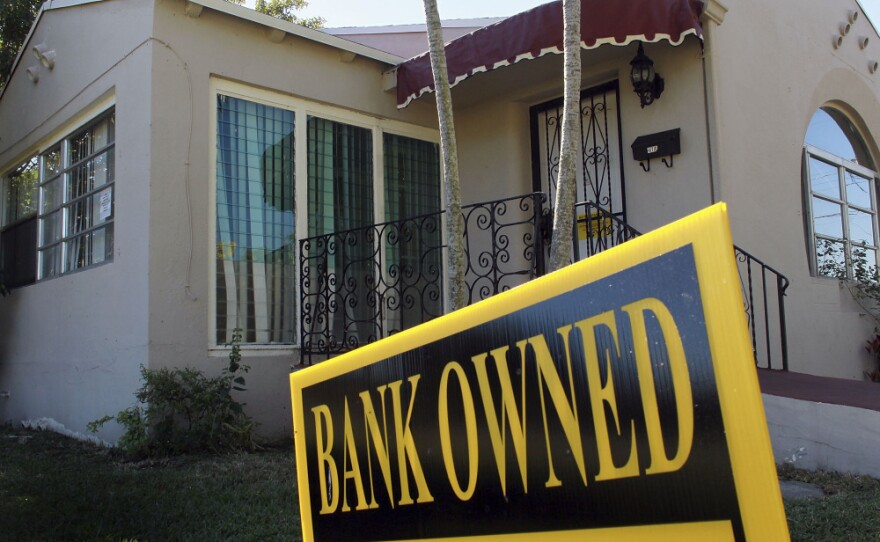Three years ago, the real estate market was simple — simply terrible, that is. In virtually every part of the country, foreclosures were shooting up and prices were plunging. Today, the real estate picture is more nuanced. Foreclosures are still rising, but prices are stabilizing in some markets, making home-buying look more attractive.
If you had talked to some good economists just before the housing bubble burst, they would have told you it didn't make sense to buy a house.
"At the peak of the housing bubble, house prices were way out of line with people's incomes so housing wasn't very affordable," says Mark Zandi, chief economist of Moody's Analytics.
Zandi, who tracks home prices around the country, says the cost of owning back then was just too high compared to renting.
"Way out of line with rents ... it was slam dunk you should rent not buy," Zandi says. "All those things have reversed themselves given the collapse in house prices. So In many parts of the country it makes sense to buy not rent."
Average home prices have fallen 35 percent nationwide from their peaks. On top of that, interest rates are at record lows — around 4 percent for a 30-year loan.
Zandi says that has probably helped housing a bit. But it definitely hasn't sparked a big home-buying resurgence yet — a sign that housing is still in the dumps.
Low mortgage rates "would normally bring people into the market with a real sense of urgency," says Chris Mayer, an economist at Columbia Business School.
Mayer says one reason that's not happening is that it's too hard for many people to qualify for the low rates. The Obama administration says it's looking into a way to help homeowners qualify at least to refinance. That could prevent foreclosures; it's something Mayer has pushed for.
"We think there are literally tens of millions of borrowers who could save an average of a couple thousand dollars a year if we were to open up refinancing in this market," he says.
Top federal housing officials expect to announce a new push in this direction in a couple of weeks.
Some neighborhoods need much more help than others when it comes to housing. Homes and condos in many parts of New York City, Washington, D.C., and Boston don't exactly look cheap.
"The most attractive parts of the country are where prices have collapsed — parts of Florida, Atlanta, Arizona, Nevada, parts of California," Zandi says. "The price declines have been 50 to 60 percent and they've overshot."
So there are bargains out there, but buyers definitely need to do their homework.
Copyright 2022 NPR. To see more, visit https://www.npr.org. 9(MDAzMjM2NDYzMDEyMzc1Njk5NjAxNzY3OQ001))







